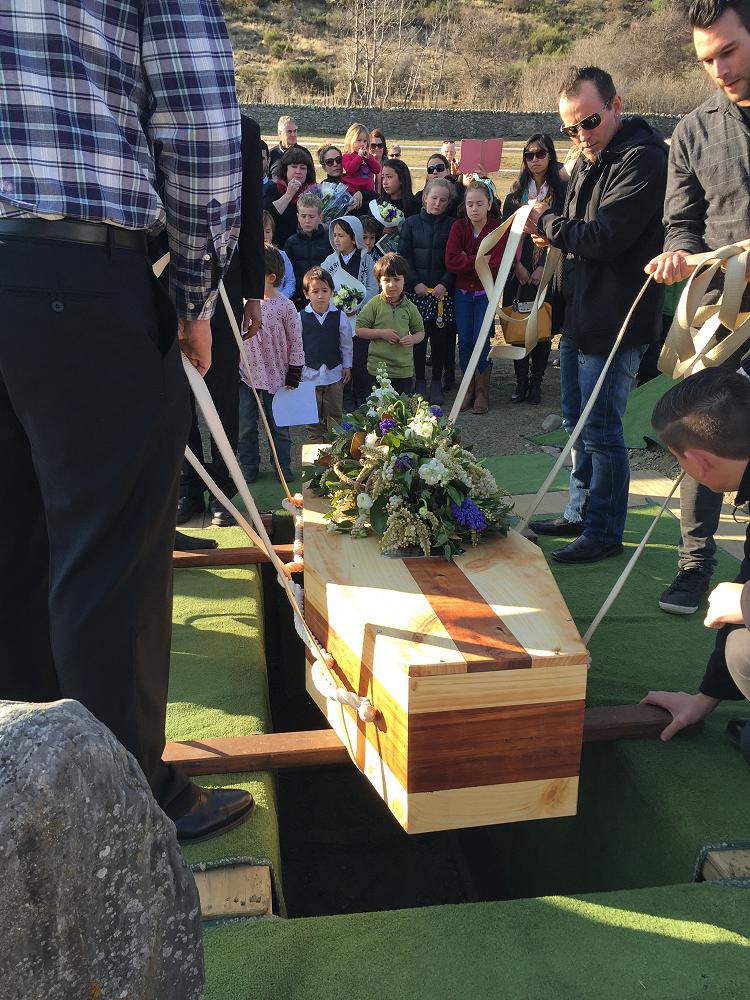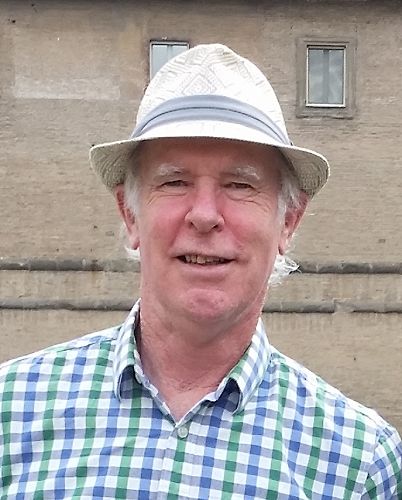
Passing over
Mike Riddell suggests that our death-denying culture distorts our capacity for living life to the full.
It has been received wisdom that there are two certainties in life. Now that the multinationals have found a way of avoiding tax, there’s only one left. For the time being, death is the final frontier. In a world devoid of mysteries, this one remains shrouded in a delicate fog of unknowing. Science is hampered in further exploration by a lack of volunteers.
From the forensic perspective, death is, literally, a dead end. The recurrent question “What happens when we die?” is easily answered. We stop breathing. Our heart ceases pumping blood. Our brain activity shows a flat line. The body begins its long decay, back to the elements of the earth from which it is composed. Our remains are either buried or burned.
None of which is particularly appealing. Let us agree together, that for the main part, we do not wish to die. Given a choice, we’d prefer to remain upright and breathing. Our Western culture, ingeniously, has found an antibody for death — denial. That which is not spoken clearly does not exist. If we don’t mention it, perhaps it will leave us alone.
Fear of death
In that period of my life when I would routinely conduct funerals, I was struck by the number of people who stared at a coffin in horrified disbelief. It was like they were peering into the chasm of mortality for the very first time. Grief was overshadowed by fear, as if sharing a room with death was potentially contagious.
Strangely enough, dying is at least as common as being born. In fact there seems to be some sort of correlation between the two. Yet while birth is celebrated, photographed, talked about, and encouraged, the other end of the continuum is regarded as a social vulgarity. Dealing with death is the equivalent of cleaning up a mess the cat has left on the floor.
Of course, death can be nasty. It can come too soon, too violently, and too painfully. But then birth gets messy at times as well, and it hasn’t put people off. Most of the time, death is relatively gentle and even a bit special. To be with a dying person is like waiting for the plane to leave at an airport, after your friend has disappeared into the customs hall with a one-way ticket.
Fear of non-existence
The sting of death is the fear of non-existence. We invest so much in this project called life that it seems manifestly unfair it should arrive at a dead end. To some observers, such resistance to annihilation is the genesis of all religion. Fearing an end as we do, we concoct an elaborate system of beliefs to assure us of an upgrade to the afterlife.
My personal maxim is that anyone who thinks the next life is preferable to the current one is a particularly joyless soul, and unlikely to be invited to my parties. It beats me how people who experience this life as so contemptible can want an extension on their term. If Victor Frankl could find joy in a concentration camp, surely we can put up with not getting our pious way.
The searching question to ask of ourselves is whether this life is sufficient, were it to turn out that there was nothing beyond the grave? That exposes an anxiety sometimes muttered on the deathbed — did I live fully the life I was given? Has the force of life flowing in me and through me been substantial enough to endure death?
To be honest, I’m a bit of an agnostic on the mechanics of what happens after death — apart from the ministrations of the undertaker. Though many will protest otherwise, I don’t regard this doubt as flowing from any lack of faith. Whether or not there is some Hotel Marigold in the sky just doesn’t figure prominently in my decisions on how to live.
Living in the future is just as disabling as living in the past. In the moment, we have been given this life on this planet at this time. It’ll do me, as my father used to say. The postponement of joy to a more convenient date seems a tad life-denying. Each of us has a gift to bring, and each day is an opportunity to present it to the world.
Death creeps into our lives by stealth. Every loss, every goodbye, every ending brings us to a small grief — are little deaths practising for the big one. Suffering, the inevitable consequence of being human, should be welcomed. Avoidance of pain fails to prepare us well for death. The essence of dying is the art of letting go. It does us no harm to practise relinquishment before getting to the final act.
Fear of the unknown
Our death-denying culture adds to the fear of the unknown. Without witnessing death, without knowing that it is an essential part of life, we too easily become reluctant to embrace it. We teeter on the edge like terrified bungy jumpers, refusing to take that final plunge into the unknown. Anxiety is not the most helpful of companions to accompany our dying.
Faith in the goodness of life
This, I suppose, is where faith comes into the equation. Not so much faith in the afterlife — atheists are capable of noble dying, and Catholics of bitter ends. The faith I speak of is faith in the goodness of life, however that may be framed. It is the belief that nothing good is wasted, and that our own existence is a part of the good.
And so at last we come to the gospel. At the centre of our story is the strange idea that neither death nor the forces of death were enough to subdue the abundant life that was in Christ. This is not so much a celebration of life after death, as the recognition of a life that is so magnificent that death cannot defeat it.
Living fully
That life begins here and now, not in some insipid vision of an ethereal and disembodied future. Only those who cleave to life and explore its outer reaches can feel confident enough to lay it aside when the time comes. Leaping into the mystery of death comes more naturally when one has learned to trust the everyday goodness of Life.
There’s a wonderful ambivalence in the poet Dylan Thomas’s injunction to “Rage, rage, against the dying of the light”. As a young man I saw it as the legitimate protest against extinction. Now I wonder if it also contains seeds of an unhelpful resistance to an important and inevitable stage of life — that of dying.
As an injunction to live fully, it works. As advice to die well, not so much. I have seen people wrestle against death with their very last strangled breath. And I’ve held a tiny baby in the palm of my hand as it briefly transited life. It would serve us all well to observe dying from time to time, and learn its intimate revelations.
Relinquishing life in trust
Letting go asks that we release what is familiar in the hope of what is better. By definition, there is no way of knowing the outcome until the deed is done. The final transition is the most demanding of them all. It bids us relinquish our hold on what has seemed so substantial, and to do it with gentle confidence. It seeks our deep trust.
The best preparation for a good death is a good life. A life that is generous, adventurous, humble, festive, accepting, honest, and loving. Perfect love casts out fear. We may not know how we will die, or the consequences of it. But we can have ultimate trust in the One who has allowed us to experience life. We travel only deeper into that mystery.
Mike Riddell writes novels, plays, films, and apology notes. He cooks when he can, and breathes intentionally on a daily basis.
Published in Tui Motu InterIslands Magazine, Issue 199 November 2015: 6-7
Gallery

